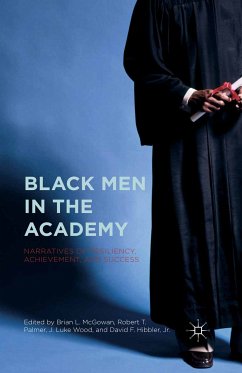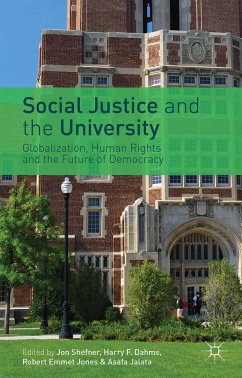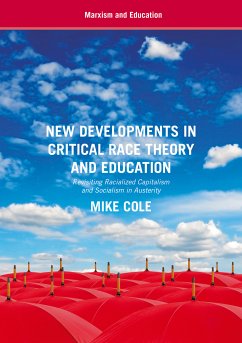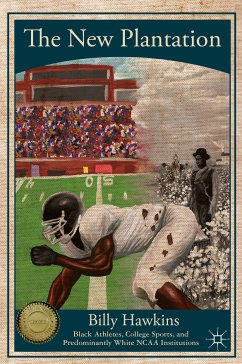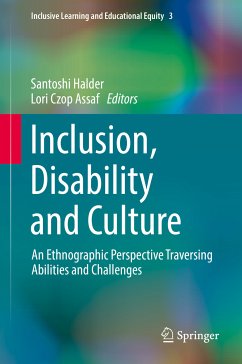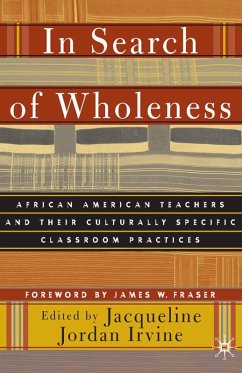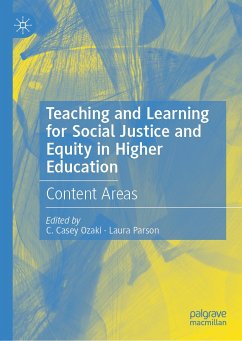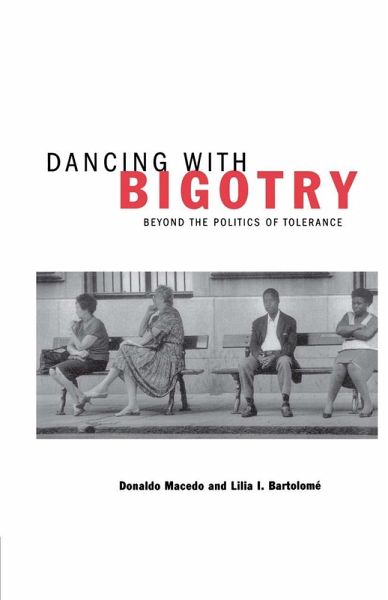
Dancing With Bigotry (eBook, PDF)
Beyond the Politics of Tolerance
Versandkostenfrei!
Sofort per Download lieferbar
40,95 €
inkl. MwSt.
Weitere Ausgaben:

PAYBACK Punkte
20 °P sammeln!
As the end of the century draws closer, one of the most pressing challenges facing educators in the United States is the specter of an 'ethnic and cultural war' - a code phrase that engenders our society's licentiousness toward racism. In Dancing With Bigotry, Macedo and Bartolomé use examples from the mass media, popular culture, and politics to illustrate the larger situations facing educators and how this type of argument is both ignored in much of the academic research and rhetoric. They also examine why it is essential to take on the sources of 'mass public education.' Academia needs to ...
As the end of the century draws closer, one of the most pressing challenges facing educators in the United States is the specter of an 'ethnic and cultural war' - a code phrase that engenders our society's licentiousness toward racism. In Dancing With Bigotry, Macedo and Bartolomé use examples from the mass media, popular culture, and politics to illustrate the larger situations facing educators and how this type of argument is both ignored in much of the academic research and rhetoric. They also examine why it is essential to take on the sources of 'mass public education.' Academia needs to understand that the popular press and mass media educate more people about issues regarding ethnicity and race than all other sources of education available to U.S. citizens. By shunning the mass media, educators are missing the obvious - more public education is done by the media than by teachers, professors, or anyone else. Dancing with Bigotry sheds light on the ideological mechanisms that shapeand maintain the racist social order, while moving the discussion beyond the reductionist binarism of White versus Black racism. Discussing social complexities, including ethnic cleansing, culture wars, hegemony, human sufferings, and intensified xenophobia, Macedo and Bartolomé explain why it is essential that we gain a nuanced understanding of how ideology underlies all social, cultural, and political discourse and actions. This book shows that it is imperative that we appreciate what it means to educate for critical citizenry in the ever-increasing multiracial and multicultural world of the twentieth century.
Dieser Download kann aus rechtlichen Gründen nur mit Rechnungsadresse in A, B, BG, CY, CZ, D, DK, EW, E, FIN, F, GR, HR, H, IRL, I, LT, L, LR, M, NL, PL, P, R, S, SLO, SK ausgeliefert werden.



